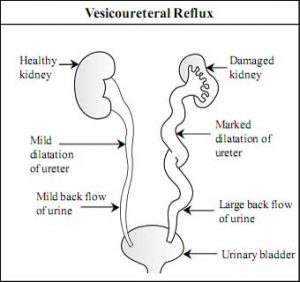
There’s a war on porn taking place right now.
A growing chorus is claiming that porn is addictive, that it promotes misogyny and sexual violence, that it leads to riskier sex, and that it’s creating an epidemic of erectile dysfunction and destroying relationships.
These are just some of the many reasons the state of Utah recently went so far as to formally declare porn to be a “public health crisis.”
Is porn really such a destructive force, though?
It’s difficult to come to that conclusion when you actually look at what the research says.
Here are five scientific facts that challenge the notion that porn is responsible for so many problems.
Porn is not addictive.
Neuroscience research has revealed that what goes on inside the brains of so-called porn “addicts” is not at all what you would expect from people who truly have an addiction.
Of course, some people do indeed have problems regulating porn use—there’s no disputing that. It’s just that their problem doesn’t seem to be “addictive”—like, say, drugs or alcohol—in nature.
Related: How to Find Online Porn Safely
Porn use is related to less—not more—misogyny and sexual violence.
A recent Canadian study using a large, nationally representative dataset found that people who watched adult films in the last year were stronger supporters of gender equality than those who hadn’t watched any such films.
In addition, other research has found that, rather than being linked to increased rates of rape and sexual assault, porn use is related to less sexual violence.
People who watch more porn don’t necessarily have riskier sex.
That’s right: Recent research from Germany has found that heavy porn users are no more likely to forgo using condoms than those who use porn infrequently or not at all.
Porn users don’t necessarily have more sexual partners, either.
However, porn use is linked to how adventurous you are in bed: Porn watchers say they’re more likely to try new things between the sheets, according to the same study.
Related: 5 Signs You Bore Her In Bed
Porn users do not inevitably develop penis problems.
Two recent studies (see here and here) have challenged the concept of “porn-induced erectile dysfunction.”
Related: The Men’s Health Guide to Erectile Dysfunction: Learn What Causes It and How to Fix It For Good
The research suggests that men who watch the most porn don’t seem to be any more likely to have erectile difficulties than men who watch less porn. Men also don’t seem to become “desensitized” to sexual stimuli after watching a lot of porn.
Porn can actually be good for your relationship.
Recent research has found that couples who watch porn together are more sexually satisfied than those who don’t watch XXX videos.
Why? It’s probably because porn is an easy way to inject novelty and excitement into your sex life.
But this doesn’t mean porn is completely harmless for everyone.
There’s one caveat you should be aware of: This summary of the research is not meant to suggest that porn never causes any problems.
Certain types of people who watch certain types of porn may very well experience negative effects.
For example, one study suggests that men who are low in the personality trait of agreeableness—that is, guys who have less care and concern for others—and who watch really hardcore stuff risk developing more sexist attitudes as a result.
Another study found that college students who morally disapprove of porn are more likely to feel distressed and upset about their own porn use.
In other words, although porn is not linked to negative outcomes overall, there are certain subsets of people for whom it may be problematic—and more research is needed in order to help clarify for whom and under what circumstances porn is linked to harm.
Justin Lehmiller, Ph.D., is an assistant professor of social psychology at Ball State University. A version of this article originally appeared on his blog, Sex & Psychology.
Article Source : http://www.menshealth.com/sex-women/how-porn-affects-your-sex-life








